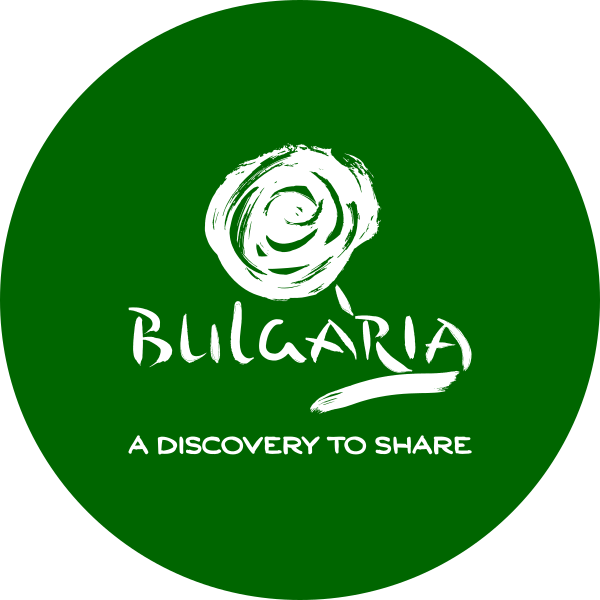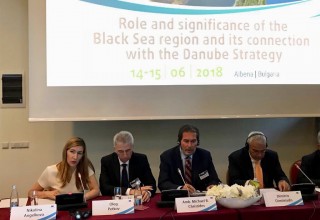Minister Angelkova: Bulgaria is a crucial factor for the sustainable development of tourism in the Black Sea and Danube regions
Bulgaria is an active participant in two very important multinational initiatives in the framework of the Black Sea Economic Cooperation (BSEC) and the Danube Strategy. As a coordinator of Priority Area 3, To Promote Culture, Tourism, and People-to-People Contacts, within the Danube Strategy, and of the Tourism Cooperation task group of OBSEC, the Ministry of Tourism is working towards intensification of regional cooperation and enhanced visibility of both regions, which was among the priorities of Bulgaria’s presidency of the EU Council in 2018. This was stated by the Minister of Tourism at the opening of the second day of the conference on the role and significance of the Black Sea region and its link to the Danube Strategy. The forum is being held in the Albena resort, with the participation of Michael Hristides, Secretary-General of OBSEC, and many other officials.
We are lucky to be among the few countries where the Black Sea and the Danube regions cross each other. Over 330 mil. live around the Black Sea and over 115 mil. in the Danube region. We are making consistent efforts to encourage understanding and partnership among them, including in tourism, emphasized the Minister.
She recalled that yesterday a meeting was held in Varna of the ministers responsible for tourism in the OBSEC member-stated, a class A event in the agenda of Bulgaria’s presidency of the EU Council. The participants expressed their preparedness to work towards creation of a common Black Sea tourism brand and development of intra-cruise tourism in the Black Sea. They signed a joint Varna declaration aiming to increase tourist flows between the destinations and turn sustainable tourism into one of the major drivers of social-economic development in the region.
We will also be working together for the creation of a common product, bringing together wine, gourmet, cultural, spa & medical spa tourism, indicated Minister Angelkova, adding that Bulgaria has already initiated the setting up of a common Balkan Route, the first of its kind project of trans-border cooperation among the region’s countries. It would have a positive impact on the measures to attract more tourists from remote and promising markets to South-Eastern Europe, she predicted.
Minister Angelkova pointed out that it would be difficult to implement all those initiatives without direct involvement of businesses. Since the very establishment of the Ministry as a standalone administration, communication with businesses is maintained permanently and openly as regards each key decision in the sector. Through the amendments to the Tourism Act and following the priorities of the government’s governance agenda, we reduced the administrative burden for businesses and citizens by removing 19 types of documents in the area of tourism, which up to now had to be submitted in hard cover. We are also working to enhance the quality of the tourism products marketed in order to attract higher end tourists. To support the businesses, we also created a Map of Tourism Investment Projects in Bulgaria jointly with the municipalities; it comprises over 30 promising locations that are important for tourism, announced Minister Angelkova.
She cited the record-breaking stats in the sector in recent years as evidence that the path taken is the right one. Last year Bulgaria was visited by nearly 8.9 mil. international tourists, which is 7.6% more compared to 2016 – a record-breaking year for the entire history of tourism statistics in our country. The 2017 revenues from international tourism amount to nearly BGN 6.9 bill., which is also a record and amounts to over 9 per cent growth compared to 2016. Nearly 4.5 mil. of the tourists hail from member-states of OBSEC, a 6.5% growth compared to 2016. Nearly 3.5 mil. tourists from countries featured in the Danube Strategy visited Bulgaria in 2017, a 4.7% growth compared to 2016. During the first 4 months of 2018 over 1 mil. of the tourists visiting the country hail from member-states of OBSEC and over 580 000 hail from countries featured in the Danube Strategy. Here too, we register an 11% growth compared to the first 4 months of 2017. Those results encourage us to work ever harder towards sustainable development of the tourism industry and to bring together the people from those regions, concluded Minister Angelkova.
In 2016, the Ministry of Tourism took up coordination of OBSEC’s Tourism Cooperation task group. Yesterday’s Varna meeting essentially concluded Bulgaria term in office in that function. Our country will also be chair of the Danube Strategy until October 2018, with the holding of its annual forum due to take place in Sofia on October 18-19. The event’s main topic will be economic growth and territorial convergence via investment in tourism. On October 18 a meeting of the ministers responsible for tourism in the Danube region will be held in Sofia, they will make a common statement on the significance of culture and tourism as a driver of economic growth and creation of jobs.







